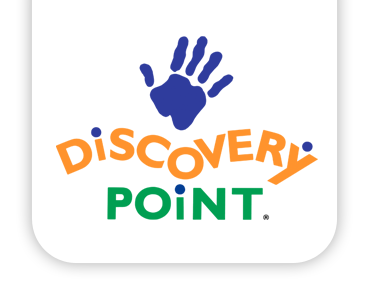Discovery Point Blog

Six Fun Educational Games for Babies
Playing games and interacting with your baby can help to create a strong emotional bond that can enhance his or her confidence and self-esteem in later life. The best games are both fun and educational, allowing your baby to learn more about the surrounding world while interacting with you. Here are six fun educational games for babies as curated by the early childhood experts at Discovery Point.
Peek-a-Boo
One of the first games most parents play with their babies is also one of the most educational. Hiding your face temporarily and then revealing it can help babies develop a sense of the permanence of objects. Even when items are hidden, they continue to exist and can reappear. By learning this basic concept, your baby can begin to explore his or her world with greater confidence and delight.
Noise Making Activities
The ability to make loud noises can delight older babies and can give them an added sense of control over their surroundings. While this game may wear on the nerves of parents and siblings, it plays an important part in teaching babies the relationship between the actions they perform and the sounds that are produced. This can provide a solid foundation for future musical activities and communication methods.
Imitation Games
Even the youngest babies can enjoy imitating simple expressions and actions. Smiling, sticking out your tongue or making a silly face can delight older babies and could inspire a contest to see who can create the most ridiculous expression. These face-to-face imitation games can provide serious help for babies in making the connection between facial cues and emotional context, an important element in the socialization process.
Building Blocks
Most babies struggle to stack up blocks during their first encounters with these popular toys. However, knocking down the blocks stacked by parents or siblings can be just as important in developing a sense of self and practicing large motor skills. Varying the size of the blocks used can also help in teaching babies about larger and smaller items. For example, oversized cardboard blocks are lightweight and safe, allowing babies to create larger structures without risk.
Rolling the Ball
Rolling a colorful ball toward your baby and watching his or her reaction can allow you to interact in a playful way while assessing readiness for other games. Many babies will react with delight or curiosity to these new experiences and may try to catch the ball or bat it away. Others may initially react with fear or nervousness. By tracking your baby’s cognitive growth and ability to interact with his or her environment, you can provide the most appropriate enrichment at every stage of development.
Babbling Conversations
An important precursor to speech, babbling is a common activity that begins in the first few months of life and continues at least until baby says his or her first words. By echoing back the nonsense syllables to your baby, you can reinforce conversational rhythms and convey that speech is intended to communicate meaning. These silly and playful activities can speed your baby’s journey from babbling to talking during these critical first years.
At Discovery Point, our dedicated teaching staff provides a safe and nurturing environment in which your baby can explore and enjoy the most enriching educational experiences. We offer customized learning plans to help each child in our care reach his or her own unique potential. Our teachers will provide you with detailed information on your baby’s development and activities throughout the day, allowing you to enjoy greater peace of mind and confidence when entrusting your little one to the experts at Discovery Poi


